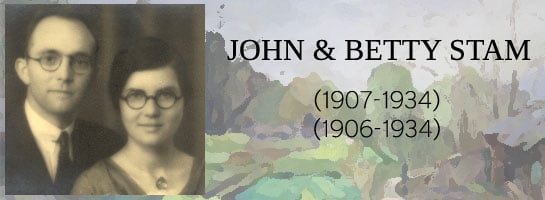President Obama’s refusal to veto an anti-Israel U.N. resolution was ranked as the most anti-Semitic incident of 2016 by the Simon Wiesenthal Center. Gen 12 v 3 – ” I will bless those who bless you, and whoever curses you I will curse, and all peoples on earth will be blessed through you.”
In the annual anti-Semitism report, the centre placed the Obama administration’s decision Friday to abstain on the UN Security Council resolution condemning Israeli settlements at the head of its list, the “Top 10 Worst Global Anti-Semitic/Anti-Israel Incidents.”
“The most stunning 2016 U.N. attack on Israel was led by President Obama when the U.S. abstained on a U.N. Security Council resolution condemning Israel for settlement construction,” the centre said. “It reversed decades-long US policy of vetoing such diplomatic moves against the Jewish State.”
Also making the list was activity by the anti-Israel Boycott, Divest and Sanctions (BDS) movement as well as U.S. white nationalist leader Richard Spencer’s questioning whether Jews are “people or soulless golem” at a November gathering in Washington, D.C.
As a South African, I watched B.D.S. destroy our economy as the world isolated our government. Despite half the world’s gold reserves and the strongest military on the continent, our economy was crippled, our travel limited, and culturally we were isolated. I left South Africa in protest and was unable to return to my country for more than 15 years.
Now the two countries that fought so hard for the right of minorities and who share a similar constitution (U.S.A. and S.A.) lead the charge in anti-Semitic behavior. The 2001 World Conference against Racism (WCAR), also known as Durban I, was held at the Durban International Convention Centre in Durban, South Africa, under UN auspices, in September 2001. Durban 2 followed in Switzerland. On the first day of the conference, Ahmadinejad, the only head of state to attend, made a speech condemning Israel as “totally racist”
He overlooked the fact that over 1 million Arabs (20% of the population) own land, live and vote in Israel, serve on their Supreme Court and in their Knesset and Cabinet, and play for their national and international sports teams.
In the past few years, scores of universities, pension funds, churches, and unions in the US, Europe, and elsewhere have supported BDS by boycotting Israeli goods and investments. The United Methodist Church’s $20 billion pension board, the biggest pension fund asset manager in the US, blacklisted the five largest Israeli banks. Norway’s $810 billion Government Pension Fund Global, the world’s largest sovereign wealth fund, blacklisted two Israeli companies over their involvement in settlement building in East Jerusalem.
The student councils of most of the University of California campuses have voted in favour of requests that the university system administrator divest from American companies making money from the settlements. The National Women’s Studies Association and other academic groups in the US have voted to boycott Israeli universities.
Two top Israeli officials have accused the Obama administration of orchestrating the resolution behind the scenes. Israeli Ambassador to the United States Ron Dermer said Wednesday that Israel would work to repeal the resolution even though such efforts can take years.
The true nature of the UN resolution is also hinted at by numerology. Resolution 2334 has a value. In gematria 2334 – is XXXX. In the rules of gematria, a repeated letter is for emphasis, turning XXXX into an emphatic XXX, which means ‘to betray’. By abstaining, US President Barack Obama betrayed his alliance with Israel, paving the way for the conference in Paris.
“Our goal would be to repeal it,” Mr. Dermer said “You know, the ‘Zionism is Racism’ resolution was sitting on the UN books for 15 or 16 years before we were able to repeal it.”
In its report, the Los Angeles-based centre said the resolution “identifies Jerusalem’s holiest sites, including the Temple Mount and the Western Wall, as ‘occupied Palestinian territory.’”
“It also urges U.N. members ‘to distinguish, in their relevant dealings, between the territory of the State of Israel and the territories occupied since 1967,’ effectively endorsing BDS,” said the report.“The reason why Jews are called Jews is because we are the people of Judea,” Mr. Dermer said. “So now the Jewish people are foreign occupiers of Judea? Judea all of a sudden has become occupied Palestinian territory? So this is absurd, and it has to be fought.”
The vote came as the latest of 20 anti-Israel U.N. resolutions approved in 2016. The U.N. General Assembly approved one resolution each against the countries of Syria, Iran, North Korea and Crimea in the same year.
Netanyahu will not meet with the foreign ministers of those countries and their ambassadors will not be received at Israel’s Foreign Ministry. The officials said that business with the embassies of those countries that supported resolution 2334 — Britain, France, New Zealand, Russia, China, Japan, Ukraine, Angola, Egypt, Uruguay, Spain, Senegal — will be suspended.
When we elect a leadership that actively:
- Promotes the widespread killing of our unborn,
- Considers the bible a version of hate speech,
- Undermines the marriage covenant,
- Exalts the Muslim faith and favors it over Christianity,
- Now undermines and curses the Jewish people.
For those that don’t believe in the God that faithfully keeps score…..Sleep well.
For those that do believe in the God that faithfully keeps score, who is the Righteous Judge, the Defender of the unborn and His people Israel…..we know there is trouble ahead.










